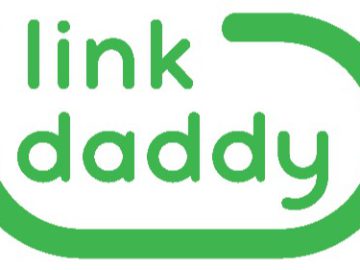AI Generated Illustration
“/>AI Generated IllustrationEveryone has heard the well-known word SEO, standing for Search Engine Optimization. You know you’ve heard of it if you’re trying to improve your website’s ranking on Google. There is a new, brighter way of doing it now: Semantic SEO. Keywords are no longer about what it is; they are about helping search engines understand what your content means and the intent behind what you’re saying. That’s writing for real questions that people have, relevant and useful.
In this guide, we’ll walk you through what semantic SEO is, why you need it, how it differs from traditional SEO, and how you can use it to get your website ranked higher. Plus, we’ll throw in some frequently asked questions to get rid of that doubt.
What’s Semantic SEO all about?
Semantic SEO at its core refers to making sure your content is understood by search engines in a deeper way. Instead of just looking for keywords, now search engines try to understand the intent and the overall meaning behind your content.
So instead of just writing “best coffee shops,” write about why they are the best, what makes a good coffee shop, and so forth. This helps Google see that your content fully answers the searcher’s question.
Search engines such as Google have become more intelligent. No longer does it only provide a match for the literal words used in a search, but instead tries to understand what those words are saying. That is precisely why semantic SEO shines.
Why is Semantic SEO Important?
Here is why Semantic SEO is the future:
● Better Experience for Readers: Your content is more useful and helpful if it is focused on answering the real questions in peoples’ minds.
● More time spent on your site: The more valuable information a reader consumes, the longer they’ll spend reading, which is great for search engines.
● More quality traffic: The more useful content you create, the better the chances of getting ranked in results, especially for longer-tail searches.
● Voice-search ready: With the increasing popularity of Siri and Alexa-type assistants, your content needs to be more like a human speaks.
● Lower Bounce Rates: The moment you clarify the questions of your readers, they’re less likely to leave your site immediately.
How to Begin Writing Semantic SEO Content
Here are some of the helpful tips on how you can do that:
● Users’ Want should be the Ultimate Focus: Whatever be the reason for someone to search for something, don’t forget why the user is doing that. Are they inquisitive for advice, products, or some other information? Your content should answer those needs.
● Consider related topics: Do not talk about a specific keyword. If you talk about “coffee, then also add “brewing methods,” “types of coffee beans,” and other related topics. This gives a fuller picture.
● Use LSI Keywords: These are called LSI keywords (Latent Semantic Indexing). Other than the primary keyword, they include words and phrases to help know what your page is talking about. For example, if you are writing about “coffee,” LSI keywords such as “espresso” and “cappuccino” with “coffee beans” fit perfectly.
● Write for People First: Although you are writing for the search engines, your content has to be friendly to people and informative.
● Do not keyword stuff: It has to look natural.
● Answer Natural Questions: Think about the most frequent questions that would come up about your topic and make sure to answer them there in the actual text. Your content may even end up on top of the page in Google snippets.
Difference Between SEO and Semantic SEO
Traditional SEO:
● It focuses on the inclusion of precise keywords in the content.
● May involve keyword stuffing, which is the insertion of too many keywords in the text.
● There is a tremendous pressure on building backlinks.
Semantic SEO:
● It focuses on understanding what people actually mean by the word or phrase they use and then providing a complete answer to it.
● It involves the use of LSI keywords in order to add profoundness to the content.
● This kind of SEO makes users love the content much more due to increased information value and usefulness.
Use Semantic SEO to Get into the Higher Ranking
Here’s how semantic SEO can help you rank top in search results:
● Create Long Contents, Of Course: Google likes pages that answer all aspects of a topic. If you write in detail on something, you will rank higher.
● Target Specific Queries: People do search for specific, detailed questions like “how to brew coffee at home”. Semantic SEO helps you naturally rank for these longer, more detailed queries.
● Optimize for Voice Search: More and more individuals use voice assistants. Semantic SEO helps you create content that’s like how people speak.
Example of Semantic Search
Suppose a user types in “best pizza near me” Google does not just search for pages containing “best,” “pizza,” and “near me” It determines what the user is looking for: namely, a list of good pizza places that are near and open. Semantic SEO ensures that your content captures that intent, so that search engines understand that you know exactly what the searcher is looking for. In order to build a strong semantic SEO strategy, you can do the following:
● Select Fundamental Topics: Decide what comprehensive topics you’d like to rank for, such as “hygienic lifestyle.”
● Create Supplementary Content: Create multiple pieces of additional content around each topic from every possible angle. Examples include blog posts, guides, FAQs, and much more.
● Use LSI Keywords: Put the LSI keywords to action by writing naturally with related phrases and terms throughout the content.
● Improve your Existing Posts: Revise your old posts according to the semantic SEO strategy you have chosen. Make it a custom to add latest information, relevant LSI keywords, and cover more aspects.
● Evaluate Performance: Keep tracking your ranking in search results and refine your strategy accordingly.
Frequently Asked Questions
1. What are LSI keywords?
The LSI keywords are closely related words to your keyword that help the search engines know what content is about. For example, if your main keyword is “pizza,” some examples of LSI keywords can be cheese, toppings, etc.
2. Is Semantic SEO better than regular SEO?
Not necessarily better—just different, and more advanced. Semantic SEO is all about understanding intent behind searches, whereas traditional SEO focuses much on specific keywords.
3. Will Semantic SEO really improve my ranking?
Yes! Writing content with deeper answers covering all aspects of the matter will give more chances for your pages to rank higher.
Conclusion
Search engines are getting smarter in today’s world, and so should your content. Semantic SEO is the means through which you can ensure that your website is not just visible to search engines but also invaluable for humans. Focusing on semantic search, LSI keywords, and understanding user intent will help you write content that will answer questions meaningfully, rank higher, and get more visitors.
Semantic SEO isn’t about ranking; it’s about actually improving the user experience for your readers as well. Now that’s what matters the most.
- Published On Nov 11, 2024 at 09:10 AM IST
Join the community of 2M+ industry professionals
Subscribe to our newsletter to get latest insights & analysis.
Download ETBrandEquity App
- Get Realtime updates
- Save your favourite articles
![]()
![]()
Scan to download App






